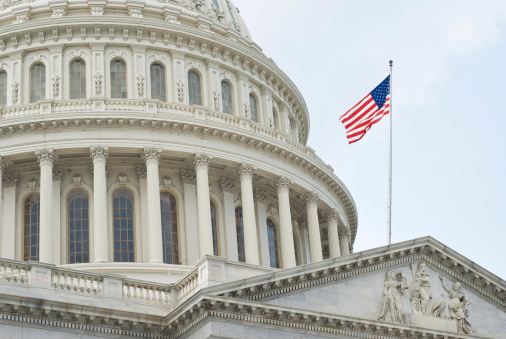
Agencies apparently fail to comply with a mandatory reporting requirement for many federal regulations.
Congress enacted the Congressional Review Act (CRA) in 1996 to reestablish a measure of legislative control over agency rulemaking. The law generally requires federal agencies to send almost all of their final rules to both houses of Congress and the U.S. Government Accountability Office (GAO) before those rules can take effect. As soon as a rule is “received by Congress,” any Member of Congress may introduce a CRA resolution of disapproval that, if signed into law, prevents the rule from taking effect or continuing in effect.
However, it appears that federal agencies have not submitted hundreds of final rules to GAO or Congress in recent years, and therefore those rules are technically not in effect. Agencies’ failure to submit rules as required also means that no Member of Congress has been able to introduce a CRA resolution of disapproval for any of these unsubmitted rules because such rules were never “received by Congress.” Furthermore, because the CRA prohibits judicial review of any “determination, finding, action, or omission,” it appears that no one can take the agencies to court to challenge the unsubmitted rules as procedurally invalid.
Starting soon after the CRA’s enactment, GAO began checking the Federal Register to ensure that all covered rules were being submitted. From 1997 through 2011, federal agencies submitted an average of about 3,600 rules to GAO each year, which was about 88% of the final rules published in the Federal Register in those years. (The percentage never fell below 82% in any year.)
GAO periodically notified the Office of Management and Budget (OMB) about missing rules, and most of those rules were ultimately submitted. However, in November 2011, GAO reduced its voluntary checks of the Federal Register and stopped notifying OMB about missing rules. Shortly thereafter, the number of final rules submitted to GAO fell sharply – even though the number published in the Federal Register remained stable.
Federal agencies submitted to GAO 2,660 final rules that were published in 2012 and 2,586 rules published in 2013 – amounting to only about 71% of the rules that were published in the Federal Register during those two years. Had agencies submitted to GAO at the historic rate of 88%, they would have sent GAO 1,242 more rules than they did.
More recent submission rates do not appear to have improved. As of mid-July 2014, federal agencies had submitted to GAO 835 final rules that were published in the first half of 2014 – less than half of those published during this period, and 647 fewer rules than would have been submitted at the 88% rate of submission.
Although most of the missing rules from 2012 through the first half of 2014 were routine or informational in nature, they also included at least six rules that are considered “major” under the CRA (e.g., rules with a $100 million annual effect on the economy) and at least 37 other rules that are considered “significant” under Executive Order 12866. Most of the 43 missing major and significant rules also did not appear to have been received by both houses of Congress, thereby preventing a Member of Congress from introducing a resolution of disapproval under the CRA.
Because Section 805 of the CRA prohibits judicial review of any “action” or “omission” under the Act, it appears that a court may not prevent an agency from enforcing a covered rule that was not reported to GAO and Congress. In 2007 and 2009, federal appeals courts in the 10th Circuit and the D.C. Circuit dismissed claims that rules relied on by defendant agencies were not reported to Congress and were therefore unenforceable.
This interpretation appears to be at odds with what the principal authors of the CRA wanted. In a joint explanatory statement issued just after enactment, the authors of the CRA said the limitation on judicial review in Section 805 “in no way prohibits a court from determining whether a rule is in effect. For example, the authors expect that a court might recognize that a rule has no legal effect” due to the failure to submit a rule to Congress and GAO.
Although the CRA has been used to disapprove only one rule during the past 18 years, resolutions of disapproval have been used by members of Congress to produce other, less obvious effects, such as to gather support for other legislation, force agencies to withdraw or suspend the implementation of certain rules, and delay rules until further information is obtained. Agencies’ failure to report rules as required under the CRA inhibits members of Congress from using resolutions of disapproval if they would otherwise desire to do so.
To improve the operation of the CRA and to ensure that agency rules can legally take effect, Congress could take any or all of the following actions:
- Require GAO to resume its annual reviews of the Federal Register to identify covered rules that have not been submitted, as well as to resume its notifications to OMB.
- Implement the recommendations made by two American Bar Association sections in 1997, and not require nonsubstantive rules (about 70% of all rules) to be submitted to Congress and GAO before they can take effect.
- Eliminate the congressional submission requirement, and only require submission of rules to GAO (as in H.R. 2247 in the 111th Congress, which the House of Representatives passed unanimously but was not acted upon in the Senate).
- Permit judicial review of agency compliance with the CRA’s rule submission requirement, perhaps only a certain period of time after GAO has formally notified the agency that a covered rule has not been submitted.
Of course, Congress might also conclude that compliance with the CRA’s reporting requirement is an administrative matter and leave it to be resolved by GAO, the Office of Information and Regulatory Affairs, and the individual administrative agencies. Until either they or Congress takes action, hundreds of rules will remain technically not in effect.
Note: This essay draws on the author’s independent report, “Congressional Review Act: Many Recent Final Rules Were Not Submitted to GAO and Congress,” which is available for download at the Administrative Conference of the United States (ACUS) website. The report was not prepared for ACUS and does not represent the views of ACUS. Further, the opinions expressed in this blog post are solely those of the author and do not represent the views of ACUS.



